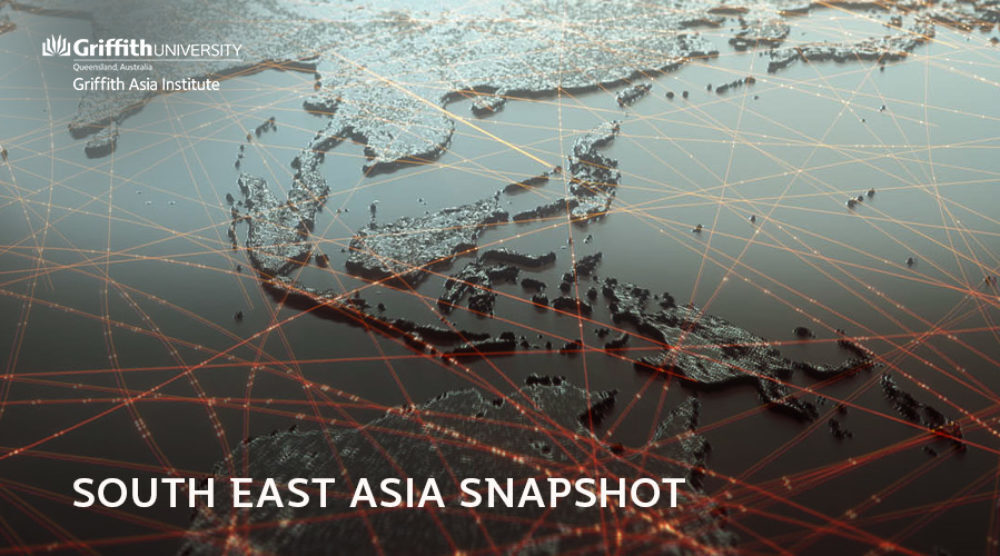The progress of the 19th Shangri-La Dialogue in Singapore
After a two-year hiatus due to COVID-19, Asia’s premier defense summit—the Shangri-La Dialogue—convened its 19th meeting from 10–12 June in Singapore with over 500 delegates from 42 countries including 60 ministers and senior security officials to discuss security issues and to enhance regional dialogue.
The keynote address from the Japanese Prime Minister, Fumio Kishida. He highlighted Japan’s commitment to becoming more active in solving security issues such as the Russian invasion of Ukraine, China’s increased assertiveness in the South China Sea, and the rapid missile tests in North Korea. Japan used this platform as a way to construct a more stable international order by promoting constructive dialogue and pledging to prepare for any security threat that may impede peace.
The dialogue was centralised around two hot topics, the US-China rivalry and the conflict in Ukraine, with the meeting mainly dominated by the competition between Washington and Beijing. The United States Defense Secretary Lloyd Austin confirmed the US’s firm position in maintaining peace and minimizing tension to avoid conflict like that from Russia translating to the region. Importantly, Secretary Austin reaffirmed US commitment to defend its allies including Taiwan. Austin also pointed out bluntly that China’s approach toward Taiwan had become more aggressive.
China, represented by the PRC’s Defense Minister Wei Fenghe, did not hold back in calling out the United States on the US Indo-Pacific Strategy which, from their perspective, was created to persuade Indo-Pacific countries to target China. Fenghe also stressed China’s strong commitment to fight until the end to cease the independence of Taiwan, adding that they will not be afraid to go against anyone who dares to split Taiwan from China. China clearly stated through the dialogue that it would not engage in an arms race or bully anybody, but conversely, would not allow anybody to bully China in return.
The Taiwanese Foreign Minister expressed sincere appreciation to the US for its support while at the same time calling out China, claiming that Taiwan was never under the Chinese government’s jurisdiction. This exchange has led some to question whether the Chinese decision to join the dialogue was beneficial at all while some also criticised the dialogue as a mechanism for the US and its allies. Others even believed the meeting has exacerbated tension and distrust between the US and China which could lead to hardship for Southeast Asian states to maintain neutrality.
The Shangri-La Dialogue was essentially a platform for the US and China to project their rivalry to the region. From the debate around Taiwan’s independence to the geopolitical strain in the Indo-Pacific, this dialogue served as a reminder of many of the complexities facing the region in the near future.
Cambodia’s political tension following the 2022 communal election
Cambodia’s communal election in 2022 concluded with a provisional result showing the current ruling party, the Cambodian People’s Party (CPP) led by Prime Minister Hun Sen, winning 9,338 Commune Council seats out of a possible 11,622 contested seats.
However, this election result was not accepted by the opposition Candlelight Party. Vice president Sun Chhay initiated a formal protest against the ruling party following claims of fraud and vote-stealing. What followed was a lawsuit from the CPP of USD 1 million that was filed on 14 June and resulted in Sun Chhay fleeing to Australia while the issue is seen by Cambodia’s National Election Committee.
Beyond that, many of Cambodia’s opposition party members, including prominent lawyer Ms Theary Seng, were accused of treason for helping Sam Rainsy – another opposition leader – return to Cambodia in 2019. Theary and the opposing party members were sentenced to six and eight years respectively on 14 June. Theary refused to flee Cambodia.
The Candlelight party’s spokesperson believed that it is normal in a democratic country for a person to freely express their view on the state’s matters. In contrast, a government spokesperson has said these comments insult Cambodia’s political institution.
The United States has expressed its concern over the recent announcements in Cambodia as they undermined Cambodia’s multi-party democratic system, urging the state to practice and exercise the freedom of speech and human rights in the Kingdom. The Human Rights Watch in Asia has warned that this is a way for the current government to crack down on its political opponent.
Fundamentally, however, it is certain that the CCP won the election in a landslide. But questions about the state of democracy in the country will persist.
Malaysia pledged to abolish the mandatory death penalty
On 10 June the Malaysian government announced their agreement to scrap the mandatory death penalty and replaced it with a substitute sentence, giving judges more discretionary power in making their rulings.
The decision was made by the Malaysian Cabinet in which they agreed to replace the penalty for 11 offenses with a mandatory death penalty, including drug trafficking and 22 criminal offences where the court can carry out the death penalty, in favour for alternative sentences in the Malaysian court. However, further studies on the substitute sentences will need to be carried out in collaboration with the Malaysian Chamber of Attorney General, the Legal Affairs Division, and other relevant ministries or departments.
The Prime Minister of Malaysia reiterated that the death sentence will remain and will not be abolished, but clarified that the government is creating a change to make the death sentence a non-mandatory penalty when sentencing a criminal in the future. While some have shown support for this approach, others, like the Human Rights Watch in Asia remain skeptical as to whether this pledge will take effect, in hopes that the government can deliver.
Although the full abolishment of the death penalty is a long way off, this is a step forward in protecting and guaranteeing the rights within Malaysia.
Sovinda Po is a Research Assistant at the Griffith Asia Institute.








